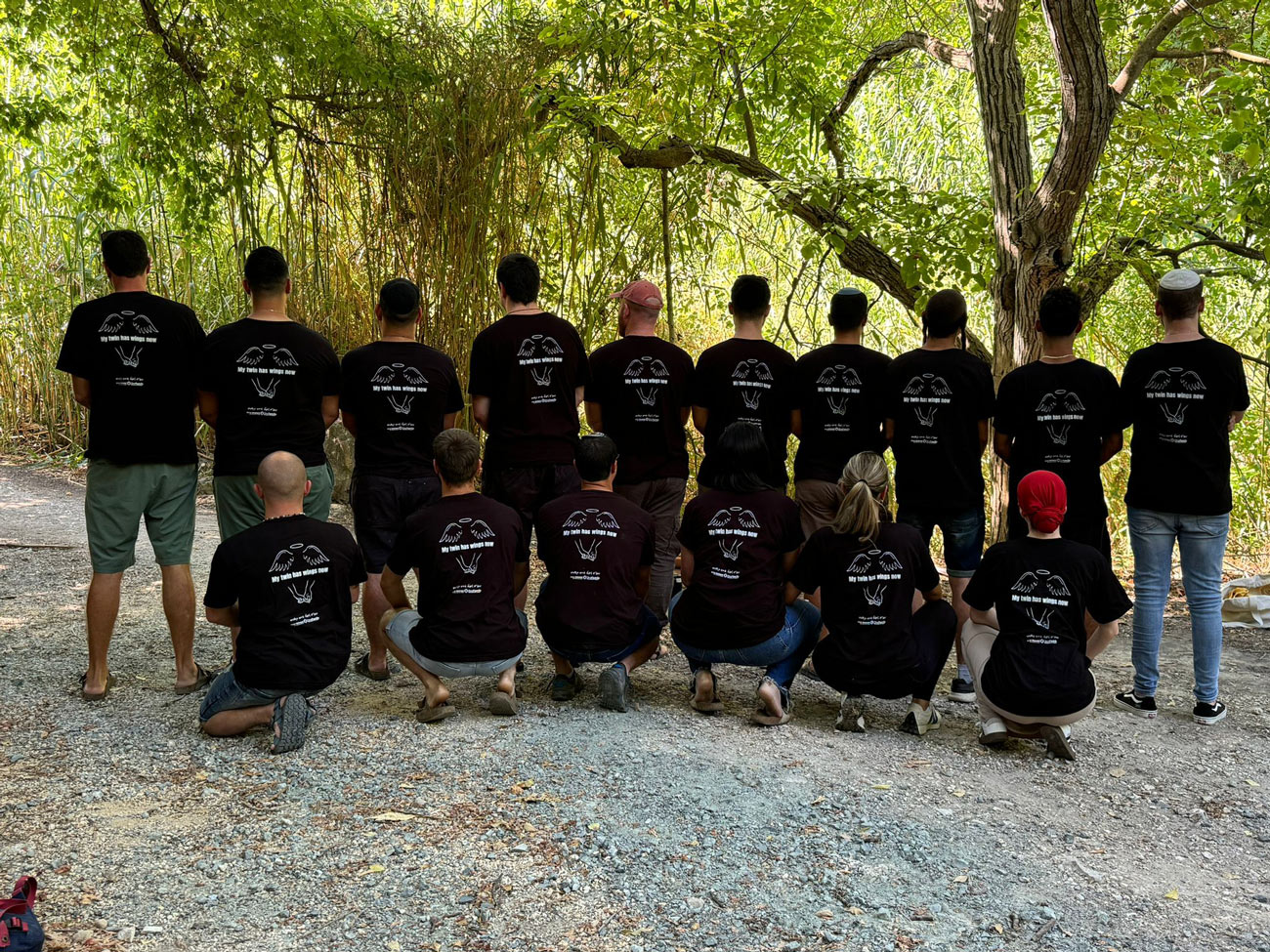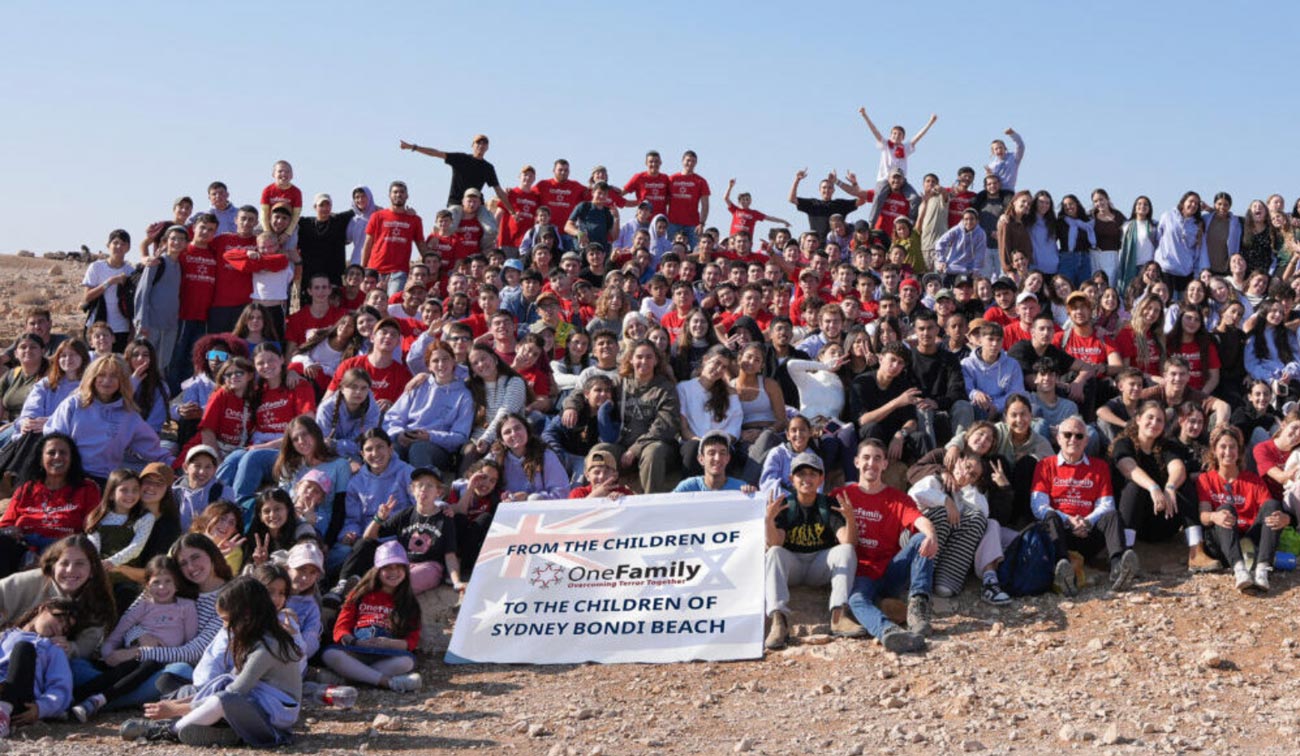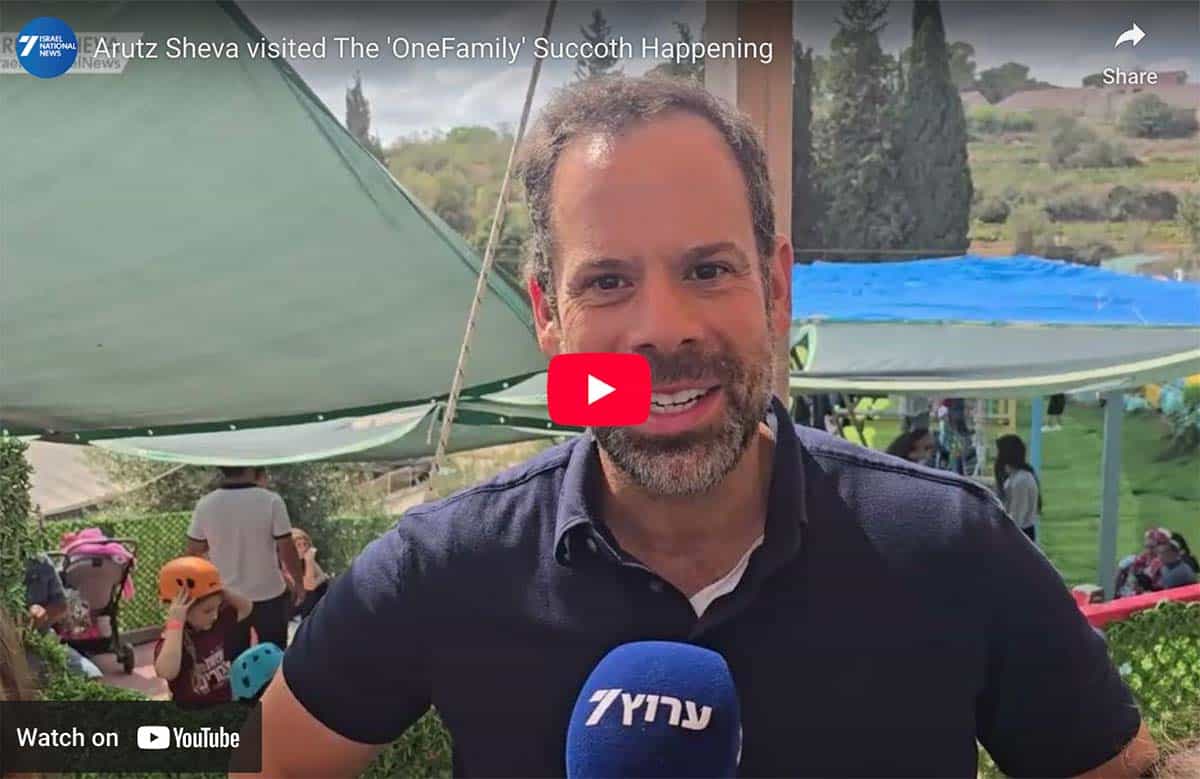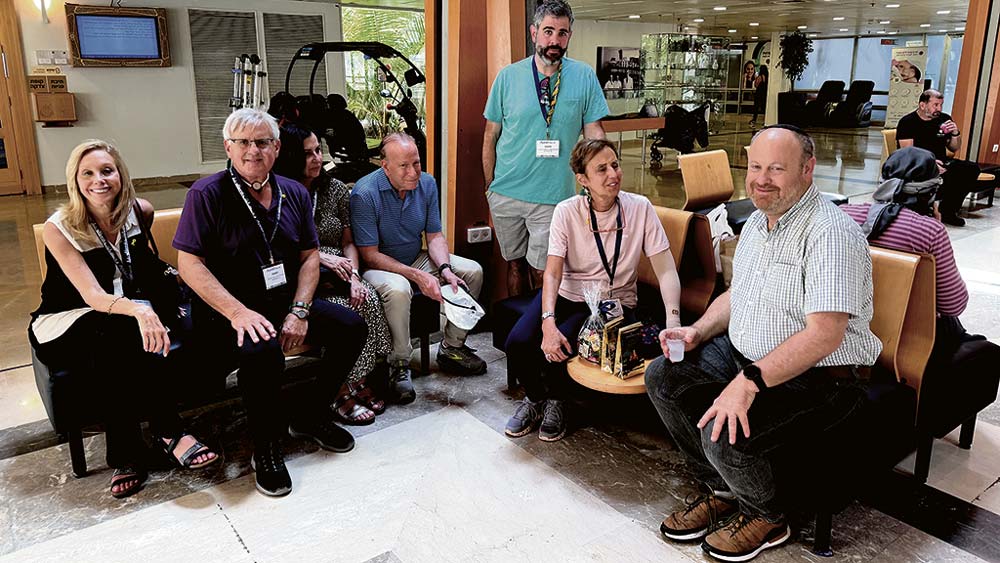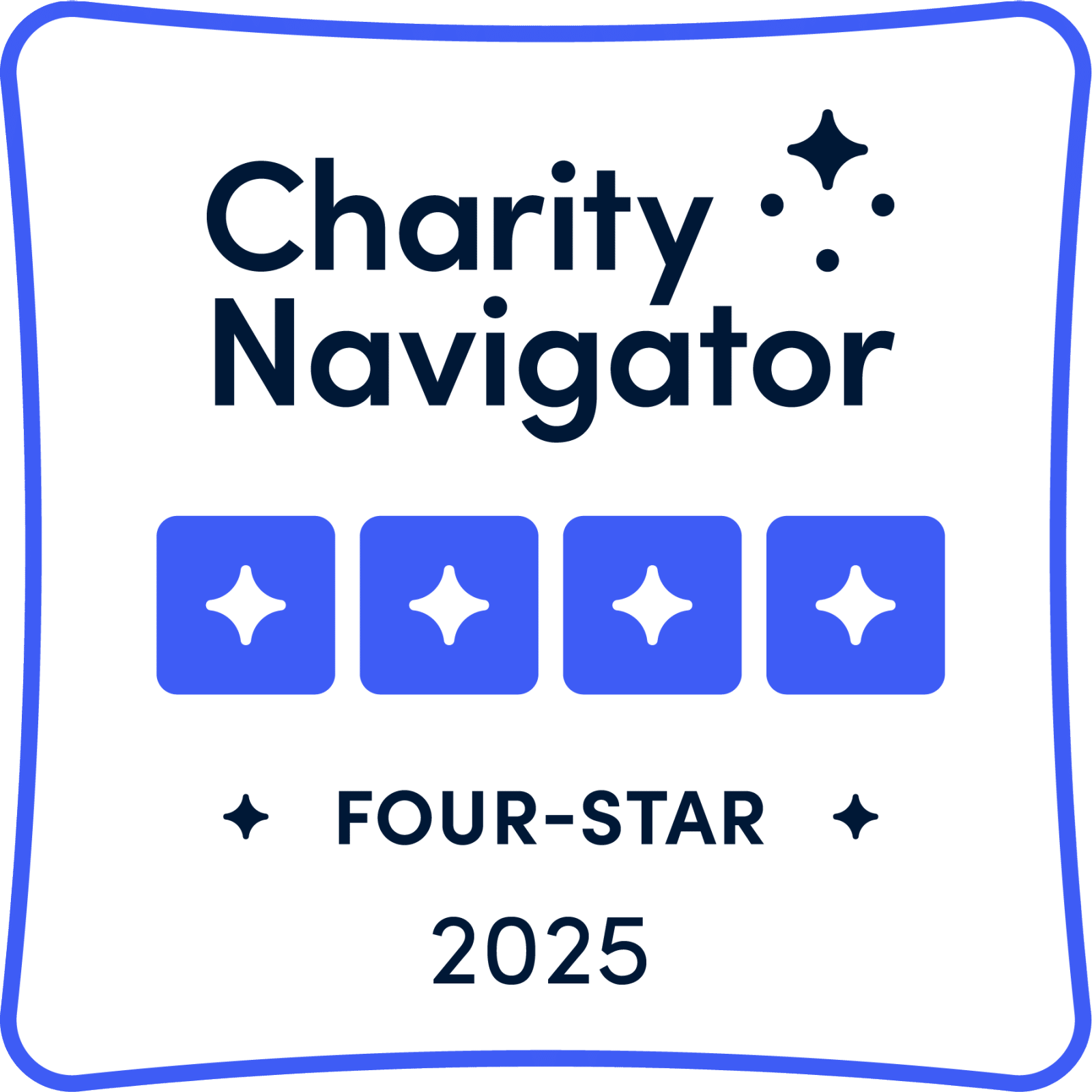table of contents
Published in Israel National News (Original article)
Talking to bereaved siblings whose twin fell in the war.
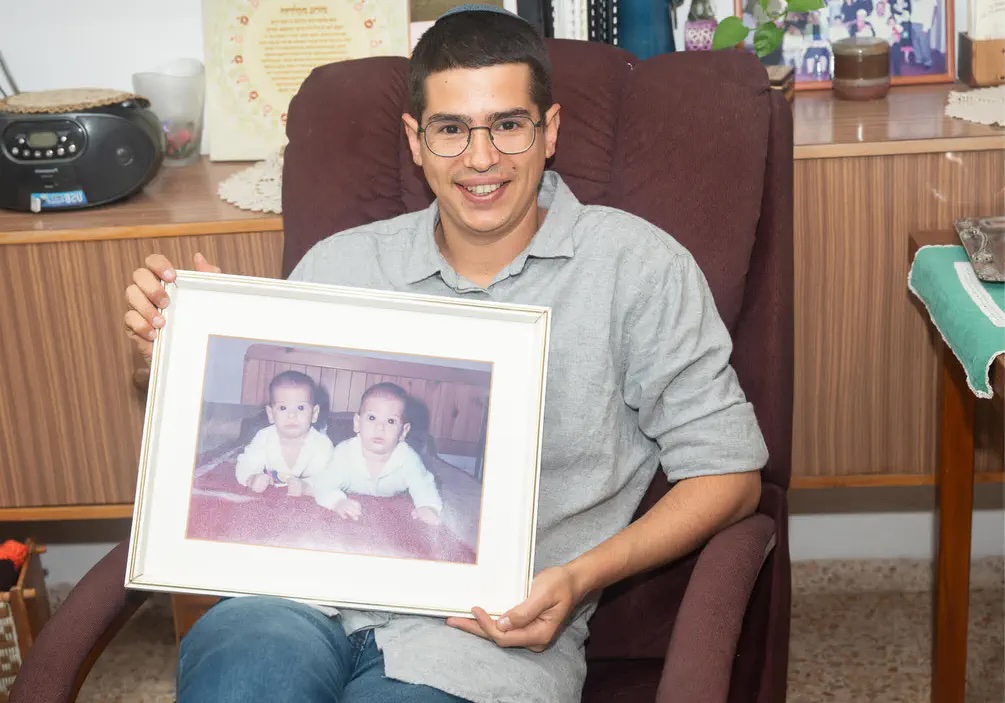
Ilana Shtotland is a reporter at Maariv Hebrew daily where this article appeared in Hebrew.
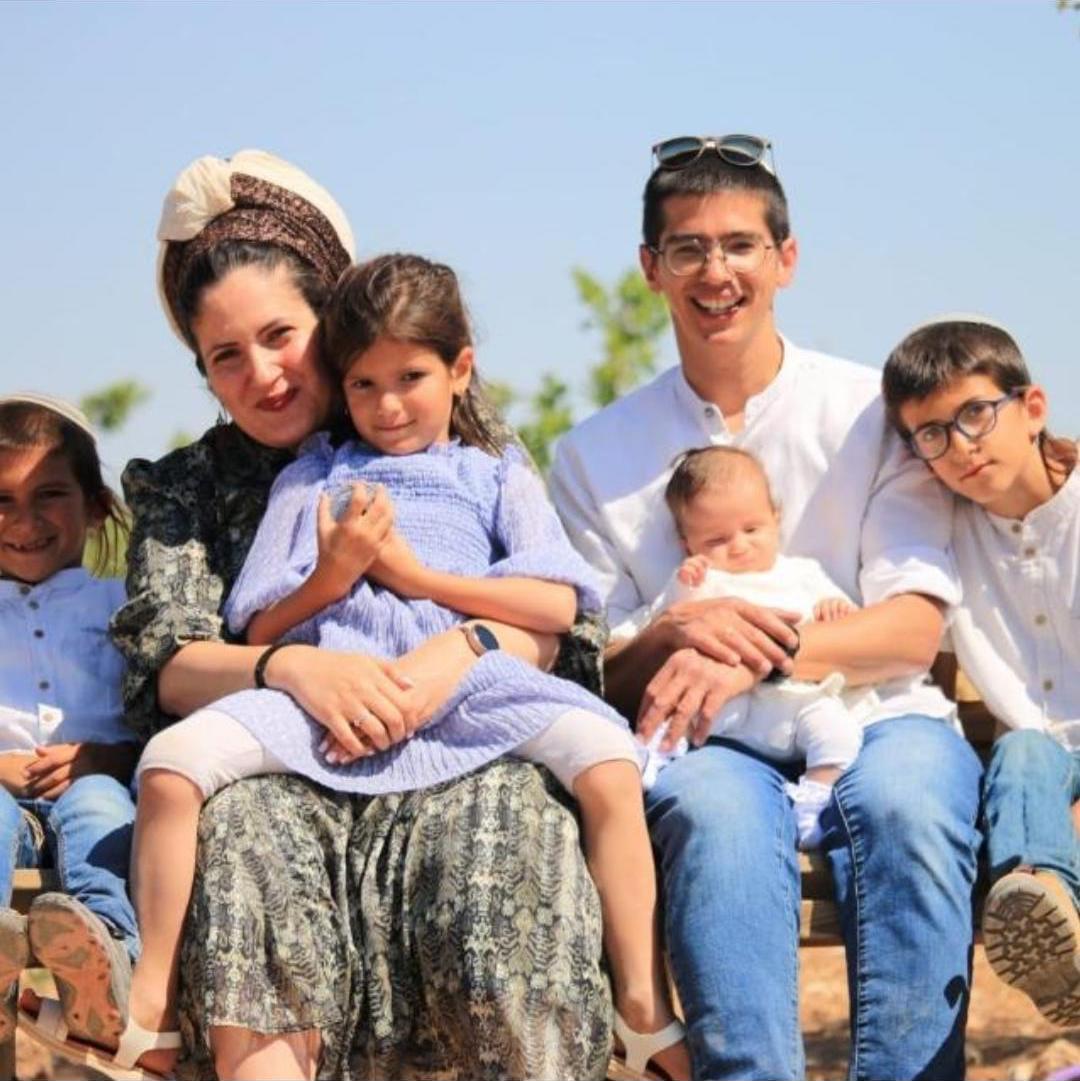
“When I eulogized Elkana at his funeral, I said that people have asked me all my life whether, as his twin, I feel what he feels. I would always say that the anwer is no, that I do not sense what he is thinking or know instinctively where he is. But the last time we met, I felt that I did. And on the day he fell, I felt something, although I didn’t know he had gone into Gaza that day, ” says Itamar Wiesel, whose 35-year-old twin brother, Master Sergeant Elkana Wiesel, Squad Commander of the 261st Brigade, IDF Battalion 8208, fell in the southern Gaza Strip on January 22nd.
“A twin is a kind of connection that forms your first memory. I knew Dor before I met my mother. From the time you are an embryo you know that your life is shared with someone, that there is always someone behind you. It means living with the confidence that you will never walk alone”, says Lior Zimmel, twin sister of Major Dor Zimmel, aged 27, a company commander in the Etzioni Brigade, IDF Battalion 8103, who succumbed after being critically wounded by missiles launched from Lebanon to the Galilee village Arab al-Aramshe.
Itamar and Lior had joined a new support group for siblings who lost twin brothers or sisters in the war, under the auspices of OneFamilyTogether.com, an organization that has supported families who are victims of terror and war for 23 years, staying at their side for as long as they are needed. The new group’s first meeting was held in the Secret Forest Retreat in Cyprus. I went to hear some of the participants’ thoughts.
Merav Uziel-Varknach, coordinator of therapies and activities for bereaved young adults at OneFamily, including this group, lost her own brother, Gaby Uziel, Hy”d in an IDF operation in Jenin in 2003. Just recently, her aunt was fatally stabbed by a terrorist in Holon – it happened the first week of August 2024. She said that “since its inception in 2003, the organization needed to come to the aid of only three bereaved twins, so it wasn’t necessary to have a support group dedicated to them. They took part in the activities for bereaved siblings, but in the Swrods of Iron War we found that there were 25 bereaved twins who had lost a sibling and three sets of bereaved triplets, leading us to open a special group for them that meets once a month. ”
“Dor was one of those people who have presence, and when he entered a room, you knew it. Not because he had a loud voice, but because of his vibrant personality,” Says Lior, 27, from Ramat Gan, a graphic arts student at HIT, the Holon Technological Institute. “Dor was always the life of the party, always funny, always bringing people together, always in the center of things. He knew how to do so much. During the past few years, he was on the Dean’s List at Reichman University where he majored in Law and Government, ran the election campaign for the Even Yehuda Council, volunteered with new immigrants from Africa, and was also a Deputy Company Commander in the IDF reserves.”
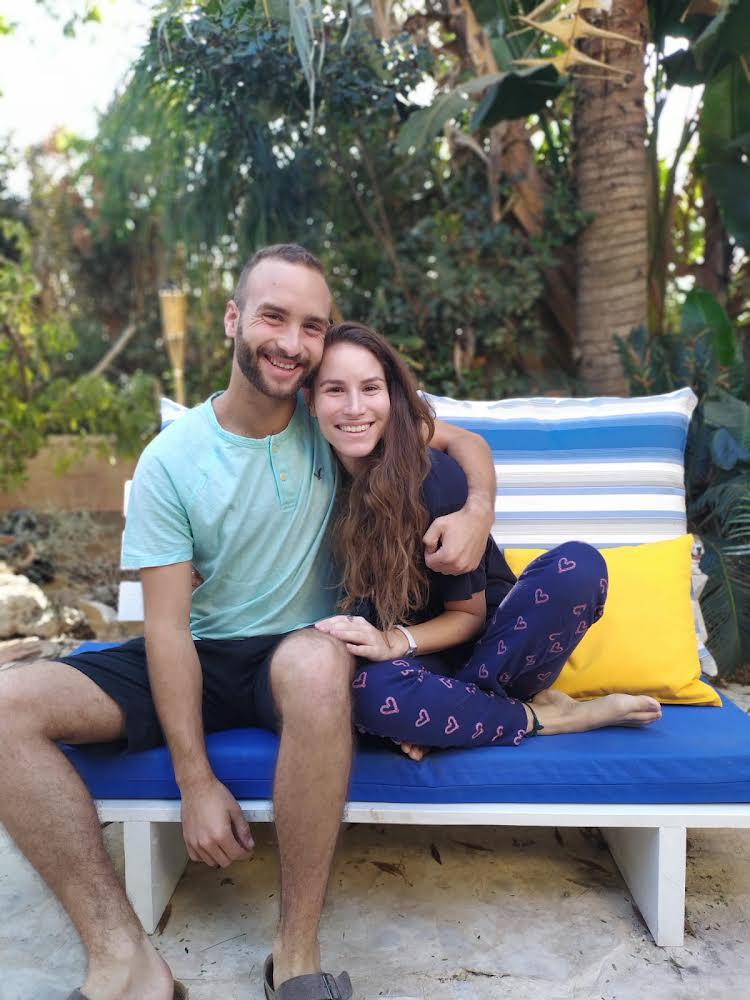
Dor Hy”d and Lior
When did you last speak to your twin?
Lior: “The war broke out, Dor was drafted, and made a video call to me wearing his uniform and with his knapsack on his back. I, naturally, began to cry, because I was afraid. During the war, there were a few times we could visit him for about five minutes, mainly to bring him cookies from our Mom. He was called up for reserve duty twice, and the second time he was mortally wounded. I saw him for the last time a month before he fell. I was accepted as an exchange student for one semester at a designer school in Germany. Dor insisted that I go, despite it being so hard to leave him during wartime. He hugged me hard, told me to fulfill my dreams, for myself as well as for him.”
The last time she spoke to him, Lior recalls, was four days before he fell. “At that time, Iran was an immediate threat. I phoned him and told him that I was afraid, that I feel anxious,” she says. “Dor was the ultimate tranquilizer, calmed me down right away, said to me: ‘Get up and go outside, have a beer and celebrate life.” I sent him a photo of myself drinking beer with my partner, Yoel. He answered: Great, enjoy!’ with three heart emojis. That was his last message to me. Several days before he was wounded, I suddenly had an anxiety attack in the middle of the night, as if my body was telling me that something bad was about to happen. I asked Dor to send me another message with a heart, just to know that he was okay. At the same hour in which he was wounded, I got a reminder from Google Photos of a picture from my history database, in which you see me, Dor and our younger brother Tom. Suddenly I felt pain and sadness, my entire body hurt.”
On April 17, the day Dor was critically wounded, Lior was just about to fly from Germany to Italy for a vacation. “My mother called a minute before takeoff,” she recalls, “and I got off the plane and flew home instead. I managed to be at his side, but he was unconscious, on a respirator, not sedated. He had shrapnel in every part of his body, one piece lodged in his brain, and a few days later, he was diagnosed as clinically dead. Dor loved dramas and a good script, and we said to ourselves that although he could not choose when to die, he did decide how to leave us, because he gave us time to say goodbye. He had signed a form allowing his organs to be transplanted and we kept that pledge. We accompanied him to the operating room, walking next to the stretcher with Ravid Plotnik’s song ‘Peace in your palaces’ playing softly. We kissed him and sent him towards a long line of doctors who performed the surgery that saved seven people.”
Itamar: “On October 7th I was at home in Sderot with my wife and our four children. When we had to leave the city on October 8th, we went to Elkana’s and Galit’s house in Bnai Dekalim. This was unusual, because every other time there had been IDF operations which necessitated our leaving home, we would go either to our parents or to friends. When we arrived at Elkana’s house, he arranged a guest suite for us and so we stayed there for three days. Elkana’s battalion had already been called up, but he had not received an emergency draft notice (called Tsav 8 in Hebrew). It was clear that he would go anyway even though as a wounded veteran of the 2014 Operation Protective Edge, he didn’t have to go.
When he said goodbye at the end of the three days, I had this thought that I don’t know what is going to happen while he is on reserve duty, and that maybe something will. When he left, I hugged him long and hard, thinking that this if this were the last hug ever, I want to really feel it, but I didn’t tell him that. And it really was the last hug.”
“I never saw Elkana again after that hug,” says Itamar. “A week after we said goodbye, Elkana began reserve duty and hardly came home. We did speak on the phone. Somehow, I wasn’t worried because I knew they were not fighting inside the Gaza Strip, and although that really bothered him, it calmed me. Eventually, they entered the Strip for a specific mission, the one in which he fell. That very day, I told my acupuncturist that I am trying to remember a word which has slipped my mind. At the end of the treatment, I remembered the word – consolation. It was only five hours before Elkana was killed. I left the treatment in good spirits, but inexplicably, an hour later, I collapsed on my bed. I didn’t understand what was happening to me, but I couldn’t function for hours, until they told me he had fallen.”
How have you been coping?
Lior: “I feel as though a part of my body is missing. I also feel that because we were so close, I can still keep Dor close. I know what he would have said about things, I can imagine him with me, talk to him in my heart. Mostly, I am learning everything over again. Our group of bereaved twins is learning how to be individuals because we were always a pair. It was always ‘Lior and Dor’ and now it is just Lior. It is a change and I must learn to live with it. My family is a major source of strength. We are a strong, expressive family. My younger brother Tom enlisted right after we sat shiva, would not give up on being a combat soldier. He, too, is a source of strength and inspiration and so is Shir, Dor’s fiancé, and my partner who has not left my side from the moment I was told the news.”
Itamar: “To lose a brother, and certainly a twin brother, is to travel the world with a hole that is impossible to fill. You need to learn, step by step, to live with the constant pain. I was always asked what it is like to be a twin, and I always answered that I don’t know, because I have no idea what it is like not to be one. Now I need to learn how to live without a twin brother. But I feel that being a twin, being one of two halves that create a whole, is still here even after Elkana was killed. I feel him strongly inside me and that gives me much strength. I draw strength from him and feel he is very close by.”
What happens on your birthday?
Lior: “The first meeting under OneFamily’s auspices was at the Secret Forest in Cyprus last week. There were bereaved twins from the Swords of iron War but also a bereaved twin from the Second Lebanon War. It was meaningful to be able to see someone who has been in this situation for many years. It was a peer group in which we gave one another strength and where we could also let our hair down. People don’t always understand what we are going through, but now, in this new group, everyone understands everyone. It was the chance to share whatever was on our hearts, the fears and the worries, like how to celebrate a birthday. We laughed and cried with people who understand us.”
Itamar: “There are a good many support groups for bereaved siblings, but here an even more focused group has been formed, just for twins. None of knew each other when we came, and something very powerful – something that only twins can understand – happened.”
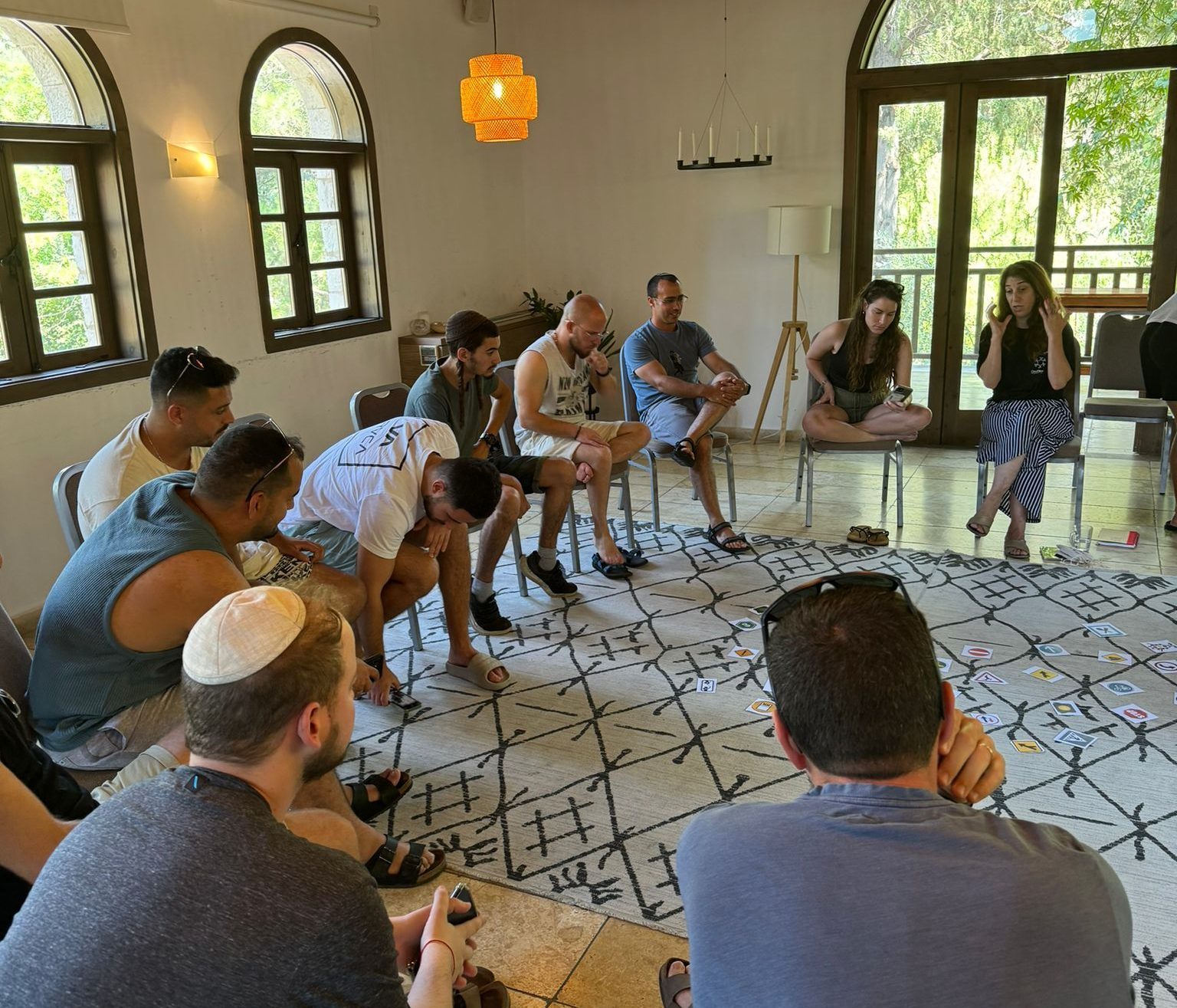
Group session bereaved twins
“It was a therapeutic weekend retreat. Seventeen bereaved siblings were there, I facilitated the therapy sessions along with Aluma Naumberg who is the coordinator for bereaved young adult siblings at OneFamily,” says Uziel-Varknach. “One of the participants said to me: ‘I don’t know how to be an individual, I was born part of a pair, I don’t know what it means to be on my own.’ Here, they were with people like them. We talked a great deal about what it is like to lose a twin, what gives someone the strength to go on. Topics arose that were far from simple, such as how to celebrate birthdays from now on.”
“Do we celebrate life or memorialize death? Can we do both at once?” Perhaps that is the biggest question of all.
